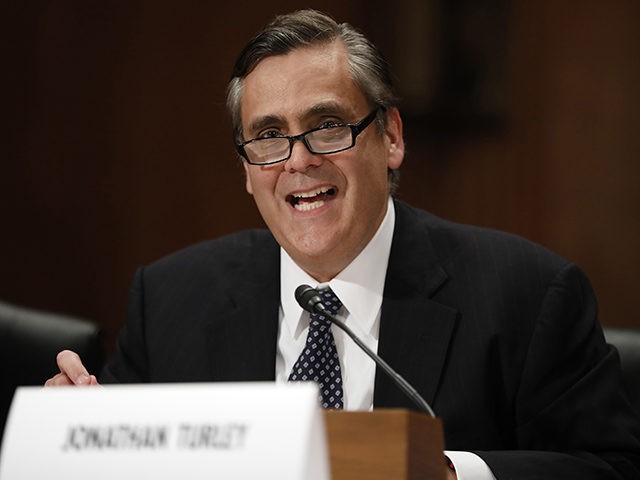An impeachment inquiry into President Joe Biden would force the National Archives (NARA) to disclose the president’s communications sent through his email address aliases, constitutional scholar Jonathan Turley recently explained.
Turley, who supports an impeachment inquiry into Joe Biden, wrote in a Hill op-ed that records from Biden’s email aliases will likely remain hidden from the public unless House Republicans open an impeachment inquiry into Joe Biden.
Under the Presidential Records Act (PRA), former President Barack Obama and Joe Biden have 30 days to block the release of the emails. House Republicans demanded NARA release the records on August 17. The agency replied on Thursday by noting Biden and Obama must approve the request, something Turley pointed out they could “easily” do.
He wrote that if there are “innocent explanations” for Biden’s using an alias, being open and allowing Congress to view the emails will make that clear, but “given the other evidence of corruption and influence peddling, it seems obvious that the information must be reviewed.”
Without an impeachment inquiry, Obama and Biden likely will block the disclosure of the emails, Turley explained:
That brings us to the confrontation with NARA. The agency could rely on the PRA statute to enforce the refusal of Biden and Obama to allow Congress to review the evidence. Biden actually is supposed to be consulted twice under the law: as the former vice president and as the current president. Both Joe Bidens are likely to have the same negative reaction to exposing his emails.
However, special access to presidential records is expressly allowed under the PRA “to…Congress” and “to the extent of matter within its jurisdiction, to any committee…if such records contain information that is needed for the conduct of its business and that is not otherwise available.” A refusal would deny Congress critical evidence into a corruption scandal and also a possible impeachment inquiry.
Turley argued any “resistance to the review of the emails” furthers “an already strong case” for the need to launch an impeachment inquiry, “an investigation into whether the Bidens were selling the illusion or the reality of influence.”
Last week, House Speaker Kevin McCarthy (R-CA) conveyed an impeachment inquiry could be launched as soon as late September. If House Republicans move forward with an impeachment inquiry into Joe Biden, the process would come from a formal vote on the floor of the House, McCarthy told Breitbart News on Friday.
An impeachment inquiry, which does not require a full House vote, would allow lawmakers special power to compel relevant information in their Biden family probe.
Not all Republicans appear to support an inquiry. Rep. Ken Buck (R-CO), among others, have voiced opposition to an inquiry.
“Members like Ken Buck — he wrote the book “Drain the Swamp”… if you can’t be there for impeachment on Joe Biden after all the damning information that is coming out and continues to come, then what do you think draining the swamp actually means?” Rep. Marjorie Taylor Greene (R-GA) asked.
“They either should step down from the Judiciary Committee or remove themselves because they’re standing in the way of real justice for the American people,” Greene added.
Follow Wendell Husebø on Twitter @WendellHusebø. He is the author of Politics of Slave Morality.

COMMENTS
Please let us know if you're having issues with commenting.